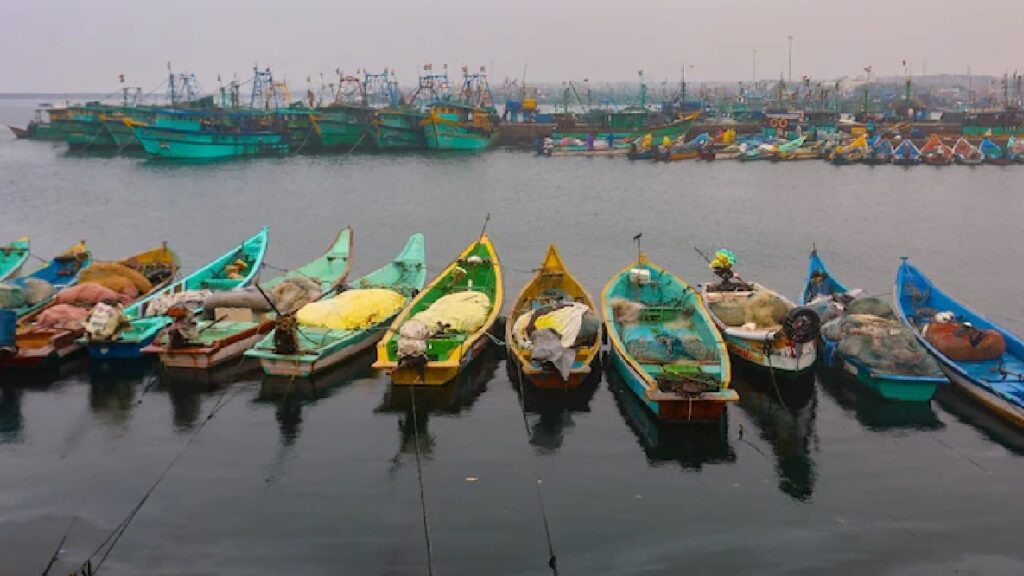Cyclone Fengal: A deep depression over the Bay of Bengal is set to intensify into Cyclone Fengal on November 27, 2024, bringing heavy rainfall and adverse weather conditions to several parts of India. The India Meteorological Department (IMD) has issued a major alert as the cyclone approaches the eastern coast, particularly affecting Tamil Nadu and neighboring states.
The deep depression, currently located about 670 km southeast of Chennai, is moving north-northwestward towards the Tamil Nadu coast. The IMD expects it to intensify into a cyclonic storm by November 27. The system is likely to continue its path, skirting the Sri Lankan coast over the next two days.
As of the early morning update on November 27, the deep depression was centered approximately
– 190 km southeast of Trincomalee
– 580 km south-southeast of Puducherry
– 670 km south-southeast of Chennai
Tamil Nadu and Puducherry: Heavy to very heavy rainfall is expected at a few places, with extremely heavy rainfall (over 20 cm) at isolated locations on November 27.
Andhra Pradesh and Rayalaseema: Heavy to very heavy rainfall is forecasted for November 28 and 29.
Strong winds are expected along the coasts of Tamil Nadu, Puducherry, and Andhra Pradesh.
The sea is likely to be rough to very rough in the southwest Bay of Bengal and along the Tamil Nadu and Andhra Pradesh coasts.
School and College Closures, Fishermen Warning:
A holiday has been declared for educational institutions in six districts of Tamil Nadu: Trichy, Ramanathapuram, Nagapattinam, Cuddalore, Villupuram, and Thiruvallur.Fishermen have been advised not to venture into the southwest Bay of Bengal and along the coasts of Sri Lanka and Tamil Nadu until November 29. Those already at sea have been instructed to return to the coast immediately.
Long-term Climate Patterns:
The formation of Cyclone Fengal is particularly noteworthy as 2024 is expected to be a La Nina year. During La Nina conditions, cyclones developing in the North Indian Ocean region (Bay of Bengal and Arabian Sea) tend to track towards the Andhra Pradesh and Tamil Nadu coasts. This pattern explains the current trajectory of Cyclone Fengal.
As Cyclone Fengal approaches, authorities are on high alert, implementing precautionary measures to minimize potential damage and ensure public safety. Residents in the affected areas are advised to stay updated with the latest weather bulletins and follow instructions from local authorities. The situation remains dynamic, and continuous monitoring is crucial in the coming days.
The convergence of Cyclone Fengal in the south and dense fog in the north underscores the diverse and complex weather patterns affecting different parts of India simultaneously. It highlights the need for comprehensive weather monitoring and preparedness across the country.
